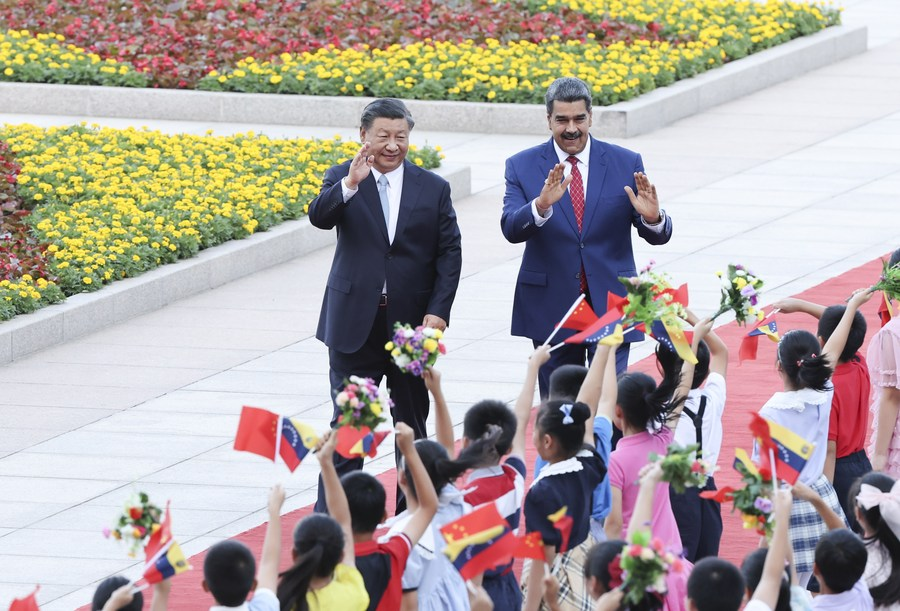Chinese experts: "Rare earths, protecting the development of strategic emerging industries, represent to China what oil represents to the Middle East"
- Nicola Iuvinale
- 2 lug 2024
- Tempo di lettura: 3 min
"Rare earths are key strategic resources and China must manage them well. A management regulation in China has allowed it to break through Western defenses". The introduction of the "Regulation" comes at a time when the EU is preparing to impose temporary tariffs on Chinese electric vehicles, so it would seem like "China's revenge". With the rise of emerging strategic sectors such as new energy and smart manufacturing, global demand for rare earths is increasing rapidly. Forecasts show that the EU, which is promoting a green transformation, will see a six-fold increase in demand for rare earths by 2030. Only a year ago, construction of the first large-scale rare earth refinery outside Asia began in Estonia. International studies have shown that it will take a long time and high cost for the West to abandon China and rebuild the rare earth industrial chain. Therefore, it's clear that Beijing's move worries the West. Some U.S. media, have also suggested that "concern" over China's control of key minerals such as rare earths "is setting the stage for potential war." According to them, rare earths are essential raw materials for the production of F-35 fighter planes, Predator drones, nuclear submarines and other weapons
China's State Council announced in late June the "Regulations on Rare Earth Management" (hereinafter referred to as the "Regulations"), which will go into effect on October 1, 2024. The "Regulations" clarify that rare earth resources belong to the state and no organization or individual can appropriate or destroy rare earth resources. The state shall implement their protective mining.
Rare earths are known as "industrial vitamins" and can be used in electric vehicles, wind power generators, and computer chips. They are key raw materials for high-tech and national defense technology industries and are linked to the lifeline of the national economy and national security.
Chinese people tell us that before 2010, the phenomenon of rare earth smuggling in China was very serious. A large amount of rare earth resources were being sold at very low prices, resulting in a sharp decline in their reserves.
After rectification in recent years, the situation has radically changed. The regulations, which will go into effect on October 1 this year, govern all aspects of the development, production and sale of rare earths and are of great importance for the promotion of high quality.
Data provided by Chinese media say that 29 countries and regions around the world have rare earth resources, but in terms of rare earth processing and refining technology, China has clear advantages in the industrial chain. Currently, about 90 percent of the refined rare earths in the global market come from China. The percentage of rare earths imported annually by the United States from China has remained stable at around 70% over the past decade.
In recent years, the West has focused attention on this strategic resource.
Data show that the United States has invested at least nearly $200 million in rare earth projects since 2020, and U.S. allies are also making every effort to develop a rare earth industrial chain that "bypasses China." Last month, Australia asked investors with ties to China to sell shares in the country's rare earth mining companies, and more than a year ago, Canada ordered three Chinese companies to withdraw from Canadian rare earth companies.
The introduction of the "Regulation" comes at a time when the EU is preparing to impose temporary tariffs on Chinese electric vehicles, so it would seem like "China's revenge."
With the rise of emerging strategic sectors such as new energy and smart manufacturing, global demand for rare earths is increasing rapidly. Forecasts show that the EU, which is promoting a green transformation, will see a six-fold increase in demand for rare earths by 2030. Only a year ago, construction of the first large-scale rare earth refinery outside Asia began in Estonia.
International studies have shown that it will take a long time and high cost for the West to abandon China and rebuild the rare earth industrial chain.
Therefore, it is clear that Beijing's move worries the West.
some U.S. media, have also suggested that "concern" over China's control of key minerals such as rare earths "is setting the stage for potential war."
According to the U.S. media, rare earths are essential raw materials for the production of F-35 fighter planes, Predator drones, nuclear submarines and other weapons.
For the Chinese, "rare earths, which "protect the development of strategic emerging industries, represent to China what oil represents to the Middle East. China must have a say in its market. The promulgation and implementation of the 'Regulations' will help deepen supply-side reform, ensure the security and stability of the industrial supply chain of strategic resources, and give us more initiative in the absence of fair international competition in high technology."
Source Guancha





Commenti